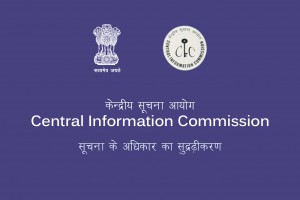Central Information Commission (CIC): The Chief Information Commissioner, Sudhir Bhargava, while addressing an application under the Right to Information Act, 2005 held that,
“A notice of “Motion of Impeachment” by any member in the course of discharge of his Parliamentary duties is covered within the meaning and scope of the term ‘Proceedings in Parliament’. Disclosure of details of members who gave the Motion and some who subsequently withdrew their names under RTI may open the parliamentary conduct of such members to public scrutiny.”
An application under RTI At, 2005 was filed before the CPIO, Rajya Sabha Secretariat and sought information pertaining to Impeachment Motion against Justice C.V. Nagarjuna Reddy, High Court of Hyderabad in December 2016, including, inter- alia;
- total number of members of the Parliament (Rajya Sabha) who had signed and moved the impeachment motion along with their names and copies of the duly signed representation, State-wise, and
- total number of members of the Parliament (Rajya Sabha) who withdrew support to the motion later along with their names and copies of the duly signed representations, State-wise.
Further, the second appeal filed on the grounds that incomplete information had been provided as the CPIO wrongly denied the information sought regarding the names and State-wise representations given by the Members of Rajya Sabha for impeachment and who later withdrew the motion under Section 8(1)(c) of RTI Act.
Respondent stated that information sought by the appellant has already been furnished and rest of the information is exempted under Section 8(1)(c) of RTI Act, 2005. Documents relating to or connected with the proceedings of the House are privileged documents and exempted under Section 8(1)(c) of RTI Act, 2005.
Interim decision
Commission observed that CPIO, with approval of competent authority, should inform in writing as to why parting of the said information would constitute a breach of privilege of Parliament.
Decision
CIC on hearing the submissions of both the parties and perusing the records, noted that in order to enable Parliament or State Legislature or their individual members to perform their functions effectively and without any impediments or interference from any quarter, certain privileges are conferred upon them under Article 105 of the Constitution.
Disclosure of details may not only indirectly influence the members in the discharge of their parliamentary duties but has a tendency to influence their independence in the future performance of their duties and would cause a breach of privilege.
Thus, the Commission, however, directed the respondent to provide a relevant extract of Rules/procedure relating to acceptance and withdrawal of motion by MPs as sought in the RTI application. [S Malleswara Rao v. CPIO, Parliament of India, Rajya Sabha, 2019 SCC OnLine CIC 300, Order dated 14-05-2019]

